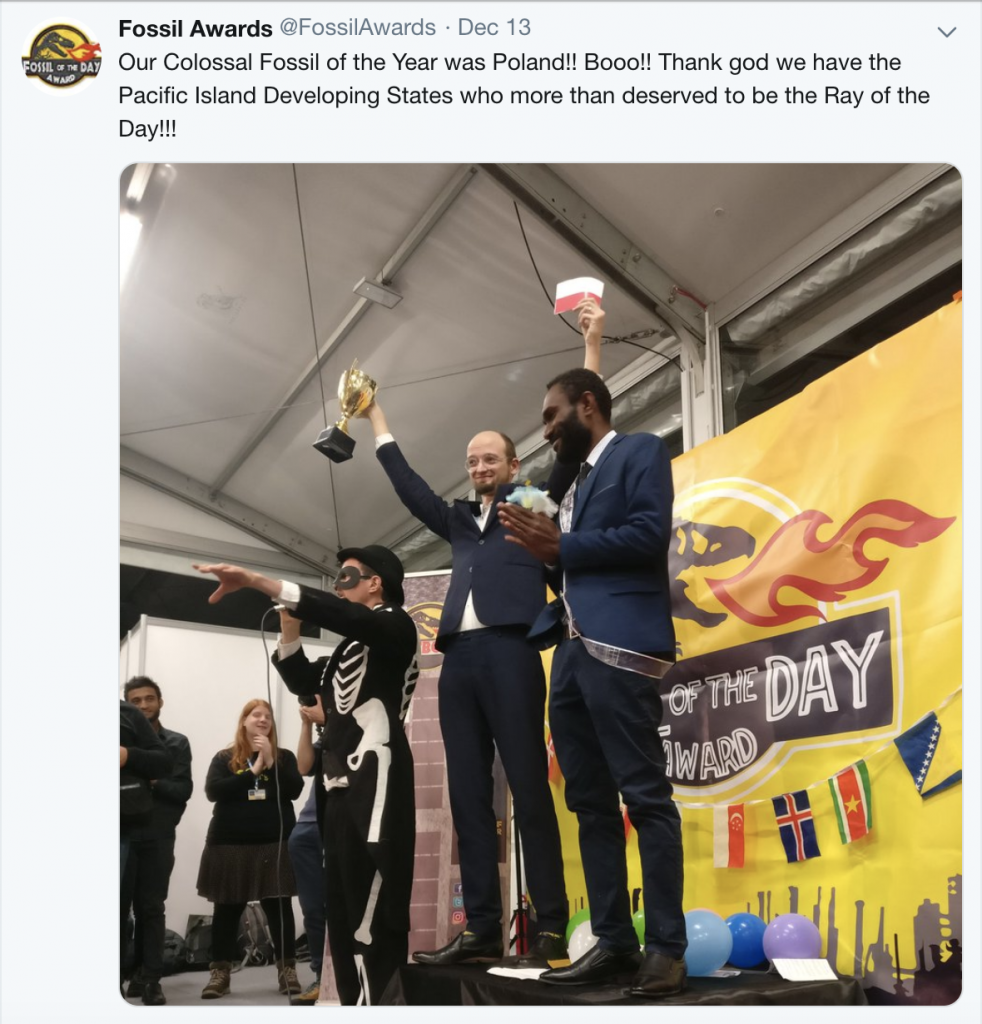Keeping an eye on my Twitter feed this week, I am disappointed to see that I missed out on some of the more exciting and emotionally charged moments from the second week of the COP. With a significantly larger presence of fossil fuel representatives in the side events this week, there was also much more room for contention. Seeing the videos of protests and walkouts from sessions being presented by fossil fuel representatives was inspiring. To see so many motivated youth taking visible action against these industries on a global stage was bold and hopefully sent a clear message to world leaders.
If the overwhelming presence of fossil fuel representatives wasn’t enough, coal took a front seat in discussions not only in the first week, but throughout the conference. From my perspective, had the COP not been hosted by such a coal-dependent country I feel the tone towards fossil fuels would be completely different. Poland even won the Climate Action Network’s Fossil of the Year award for its promotion of coal and for attempts to suppress NGO activists. Poland also won the Fossil of the Day award a few times over the course of the two weeks. On the other hand, they have also returned to awarding the Ray of the Day to countries that are promoting cooperation and positively working towards success in the COP.

Source: Twitter
While I valued all of the sessions that I attended in the first week of the COP, I would love to have attended the second week to see more of the intense debate. It is disappointing, albeit not surprising, that the US has now aligned more with countries like Saudi Arabia and Russia in trying to block progress on the Paris Agreement. This is incredibly frustrating considering the US (as one of the largest emitters of CO2 globally) has expressed its intention of withdrawing from the agreement but insists on blocking progress before that time comes. It is equally frustrating that the countries that are pushing for the most action are the developing countries that are most vulnerable. It feels like this devastating cry for help and those in power are not listening.
In the end, this course was incredibly valuable in understanding the complexities and sheer magnitude of work that goes into international agreements regarding climate change. I walked away from the conference and this class with actions I can take now that will hopefully make an impact in the grand scheme of tackling climate change. I also feel a sense of hope that so many young people have stood up for climate action and are going to be the next generation of leaders that will hopefully take even more serious and meaningful action on climate change. The young Swedish activist Greta Thunberg gave a speech in a plenary session this week in which she succinctly summed up my feelings about intergenerational equity with “You are not mature enough to tell it like it is. Even that burden you leave to your children.”
*FOMO = Fear of Missing Out

